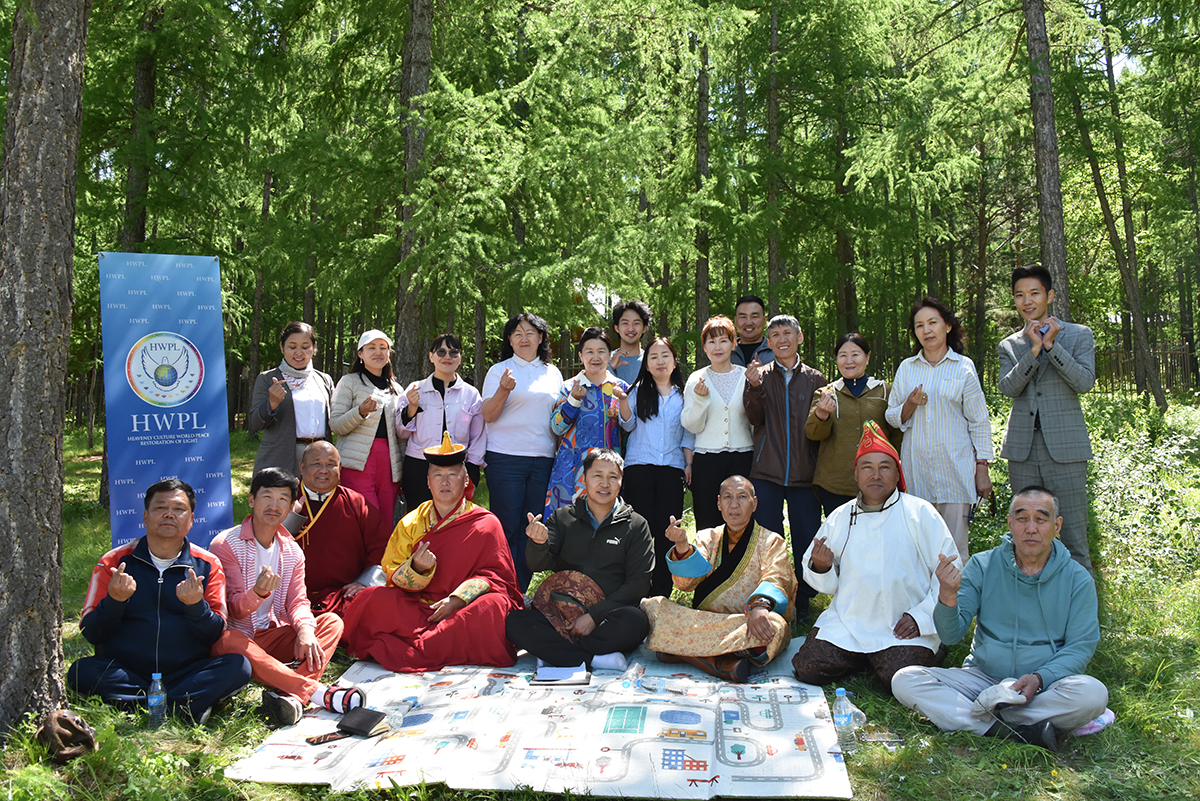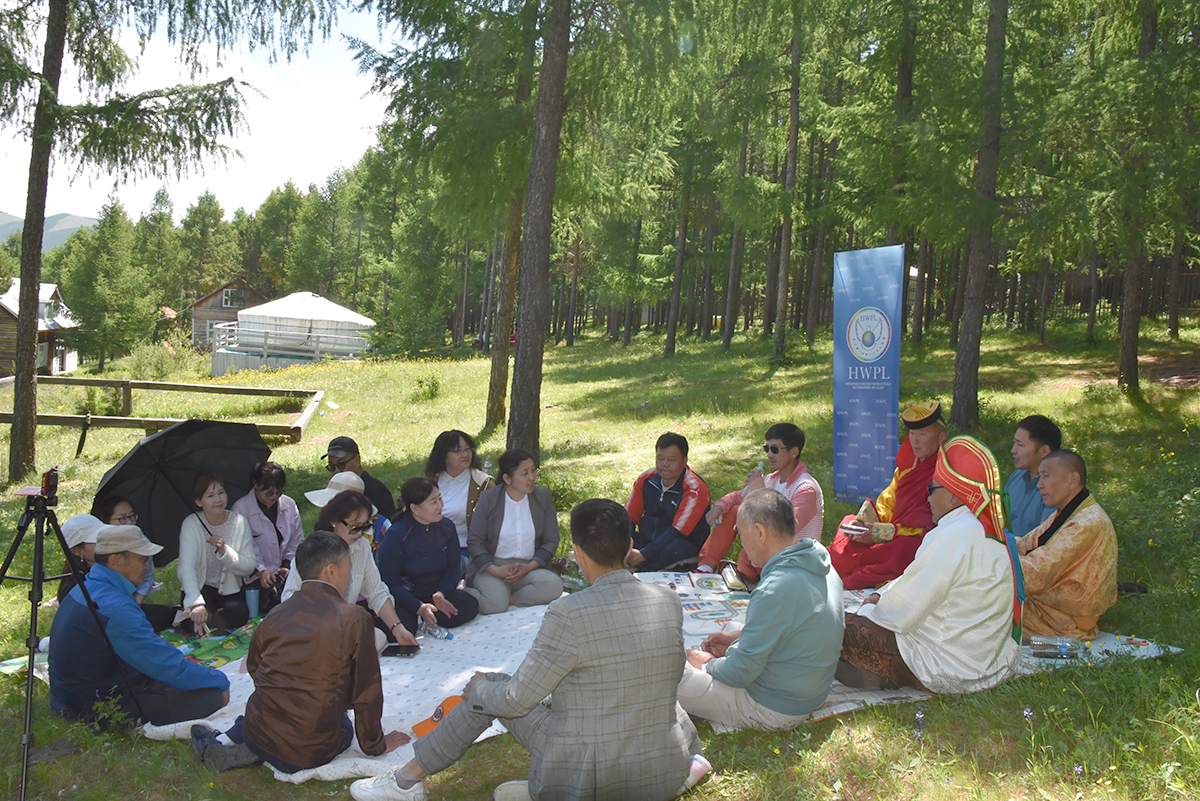[HWPL]
[HWPL] HWPL's WARP event in Mongolia!
Three Mongolian Religious Affairs Offices Host Joint Discussion
On June 15th, a discussion hosted by Heavenly Culture, World Peace, Restoration of Light (HWPL) took place at Yargait Mountain in Mongolia.
The event brought together around 19 religious leaders and organization heads to discuss the topic of food and religion. This dialogue was particularly noteworthy as it was a collaborative event involving three Mongolian WARP (World Alliance of Religions’ Peace) offices from Ulaanbaatar and Nalaikh. Religious leaders from Hinduism, Buddhism, Islam, and Christianity participated, sharing insight into the characteristics and taboos of food in their religions, and engaging in discussions based on their scriptures.

Bavuu Bayarsaikhan, a scholar from the Krishna Mandir Hindu Temple, described Hindu dietary practices. “Every food we consume in our lifetime possesses life or a soul, which inevitably brings about karma,” Bayarsaikhan said. “Animals, plants, and fruits all serve human needs, but their lives are taken in the process. Thus, those who seek to know and worship God should particularly avoid killing animals. Emphasizing plant-based foods is considered a lesser sin.”
Sukhbat Purevjav, an NGO chairman of the Board of Palace of Traditional Rituals of the Mongolian Nation, shared his viewpoint on food mentioned in Buddhism. “Food is needed to provide nutrients to our body, but knowledge and information are significant in providing wisdom,” Chairman Purevjav explained. “One with wisdom would always speak positive words and has positive thoughts, and will inherit to one’s children. At this time when the whole world is facing a crisis, what is important is the food for spirits such as traditions, God’s teachings, and knowledge that has already been proven.”

Tserenchimed Jurnai, chairman of Khudaya Association of Mongolia, introduced Islamic food culture and customs. “According to the Quran, Muslims don’t eat meat that was hunted, diseased, or cruelly butchered,” Chairman Jumai said. “We avoid drinking alcohol, taking drugs, or banned food such as pork. The representative food in Islam is barley flour that we cultivate and harvest and make pure.”
The time that the religious leaders and organization heads spent together was meaningful. The event participants gained a better understanding of the food culture and traditions of each religion and were glad to take part in HWPL’s peace initiatives.
HWPL Official Homepage







No comments:
Post a Comment